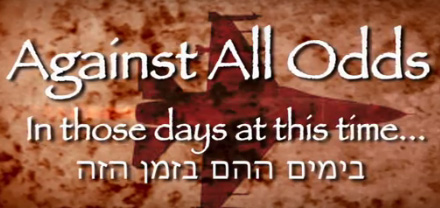
Almost 90% of American Jews celebrate Chanukah, making it the most celebrated Jewish holiday besides Pesach. Since even the most secular Jews feel a connection to the holiday, a class on the meaning of Chanukah is an excellent way to bring people closer to yiddishkeit.
In yeshiva day schools, even the youngest child knows that the miracle of Chanukah was that “the many were handed over to the few,” but this may be a new concept to adults just getting their feet wet in Judaism. Torah Live’s video presentation on Chanukah serves as a good introduction to this theme. Even better, it draws a parallel between the Maccabean Revolt and the Six Day War. Many secular Jews may be more familiar with the events of 1967 than those of 164 BCE.
Show this film to your students:
After watching the video, you can guide the class in a discussion of emunah and hishtadlus.
Jewish history, both ancient and modern, teach us that our successes and failures are in Hashem’s hands. We may have the smallest army, the fewest weapons and no international support, but if G-d wants us to win, we will. Conversely, even when we have the best technology and the most resources, victory will only come if it is Hashem’s will.
But wait, does that mean we can sit back and wait for Hashem to rule the world however he sees fit? Of course not.
That’s why Yaakov did not rely entirely on tefillah when he went to meet Eisav, but also bought presents and prepared for war. In our lives, we often find ourselves in a position where our efforts are necessary along with faith in G-d. We go to work each morning because that is the effort we need to invest in order to make a living, despite the fact that our parnassah is not really in our hands. When someone is ill (ch”v), we consult with the top physicians and take their advice, even though we know that life and death is dependent on Hashem’s will.
Rav Aaron Rakeffet has famously quoted Rav Yisrael Salanter as saying that “one needs emunah as if there is no hishtadlus, and at the same time needs to put in the hishtadlus as if there is no emunah.” You can ask your students how these two concepts have played out in their lives and how they take them into account when making decisions. They may be surprised to discover how much they rely on faith in their decision-making process!
Toward the end of the class, you can give students the opportunity to discuss what Chanukah means to them personally and how they can integrate the theme of emunah into their celebration this year.
Additional materials on Chanukah and emunah:



















